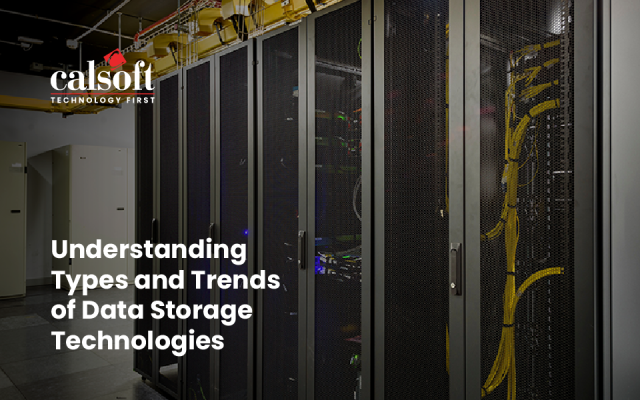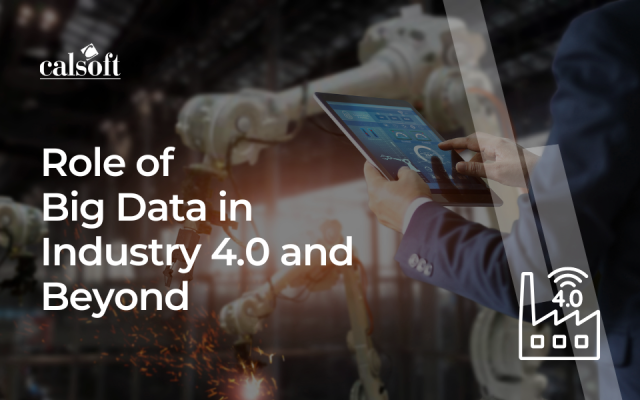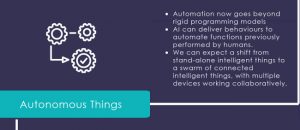The retail sector is evolving, accelerated by the rise of e-commerce. This evolution is steered by key elements such as urbanization, fluctuating consumer demands and preferences, technological innovations, fiscal growth, and governmental policies. In the olden days, the retail sector encompasses small independent stores providing a constrained range of products to meet the demands of the local community. Gradually, this evolved into innovative notions and organized retail practices such as supermarkets and hypermarkets. The popularity of e-commerce platforms like Flipkart, Myntra, Amazon, and further sped the revolution of the retail industry.
Consumers are more notified and enabled than ever, with prospects for personalized experiences. Retailers must stay competitive and ahead, recognizing consumer behaviors, supervising supplies smartly, and modifying marketing tactics that resonate with various market sectors. This demands tactical insights into data. Big data analytics act as the cornerstone to meet the growing demands of users globally, by encouraging retailers to make intelligent decisions, and remain competitive in the market. The blog discusses how data-driven decision-making will be a transformative approach for retailers to reach heightened success.
The Vision of Big Data in Retail – The Leading V’s
Big Data Analytics can benefit the retail sector by presenting valuable insights into consumer preferences, behaviors, and demands, facilitating customized experiences. This is achieved by utilizing data from various sources to optimize the operations, predict relevant trends, and streamline the shopping experiences.
Big data holds massive amounts of structured, unstructured, and semi-structured data produced from diverse sources. Some of the key attributes that specify big data in retail are as follows:
- Volume: Huge volumes of data are generated from different sources such as social media, customer transactions, databases, and more. Giant organisations may have to handle more than a million customer transactions in an hour.
- Velocity: In the highly dynamic retail environment, data generation and processing speed is extremely fast, especially from digital channels. Retailers need real-time data analytics for effective and fast decision-making.
- Variety: Data in the retail industry comes from various formats and sources. These sources include operational databases, online customer behavior data, sensor data from IoT devices, social media conversations, and more.
- Veracity: As data comes from several sources, guaranteeing the accuracy and reliability of insights derived is important for retailers.
- Value: The value of big data lies in the key insights driven by the data which helps in realizing efficient business operations and growth, supporting robust customer relationships.
- Variability: This indicates the varying characteristics of data or irregularities in the usage and flow of data.
To raise the data value, decision makers should know the above leading Vs in big data.
Challenges and Risks of Big Data Analytics in Retail
Though big data analytics benefit retail industry in many ways, however, there persist certain challenges and risks that need to be considered and tackled. The challenges can be addressed by adopting strong data governance practices, choosing appropriate technology and infrastructure, involving skilled team for successful implementation of big data analytics in the retail sector. Let’s investigate the key challenges involved in big data:
Ethical and Privacy Concerns
The massive manipulation of personal information increases the risk of ethical and privacy concerns. If these sensitive data are not manipulated properly, legal implications can result as per data protection laws like the General Data Protection Regulation (GDPR).
Integration and Management of Big Data
The data originating from multiple sources need to be seamless to support real-time decision making. Besides, retailers must support efficient infrastructure to store and process huge volumes of data from these different sources. Retailers need to ensure that their infrastructure handles large volumes of varied data and seamlessly integrates it from multiple sources. The lack of better infrastructure and poor integration can cause erroneous analytics, leading to faulty decision making. The key challenge here lies in delivering good and reliable data quality and analytics.
Lack of Tools and Trained Team for Successful Implementation
Organisations should have the capabilities such as efficient tools to manage, analyze, and store massive amount of big data generated from multiple sources. On the other hand, trained staff or teams with competitive skills are necessary to derive valuable insights from the diverse data sources.
Quality and Cost of Data
The accuracy of data is important to provide quality analytics for real-time decision-making. To set up and maintain big data analytics systems for obtaining significant insights can be costly, giving challenges for smaller businesses.
Big Data Analytics in Retail — Efficient Business Practices and Benefits
There are various ways in which big data can embrace retail industry to realize substantial results in their production. The retailers need to follow best practices to leverage big data analytics to enhance their customer experience, strategies, revenue streams, and business development. Some of the best practices include:
Data quality: Reliable and good quality data is significant for decision-making process. This is accomplished by following strong data governance practices, including specifying data standards, quality measurement, and practices for data cleansing, and maintenance.
Integration of data sources: Data generated from various sources need to be combined to realize a cohesive data view for significant insights and analysis.
Employing advanced analytics and machine learning: The valuable insights can be derived from various data sources by utilizing advanced analytics techniques and machine learning algorithms. Predictive modeling, clustering, and recommendation mechanisms can support optimized operations for realizing better customer experience.
Scalability: The big data framework should be flexible and scalable to incorporate the future data explosion and dynamic business demands.
Conformity with data privacy and security regulations: To upkeep the customer trust, it is important to give precedence to data privacy, security, and follow legal requirements. Highly sensitive personal and business data needs to be secure through robust security measures and approaches.
Big data analytics has become a keystone in the retail industry, realizing many applications that change how retailers manage their operations and interact with customers. The following details the key industrial applications and benefits of big data in retail sector:
Inventory and Supply Chain Management
Big data analytics help retailers forecast the demand for products, optimizing the inventory or stock levels, minimize excess and unwanted stocks, and assuring that adequate amount of stock exists to meet the customer requirements. This is achieved by analyzing past sales patterns, trends in social media, local events, and more. This realizes cost effectiveness, enhanced sales, and better customer experience.
With data analysis from the supply chain, retailers recognize inadequacies to optimize systematic maintenance of equipment, realizing reliable deliveries, better supplier management with efficiency and less cost.
Customer Analysis and Segmentation
Retailers can realize in depth insight into customers with big data analytics. This is achieved by examining the customer behaviors, their preferences/choices in shopping, location, and more. This conception facilitates retailers to adapt services, and marketing policies according to customer segments, leading to supreme customer experience.
Big data can provide browsing history, shopping patterns and interactions of customers, which help retailers for targeted advertisements, and personalized recommendations, eventually improving sales and customer experience.
Pricing Optimization
With the big data analytics, retailers can understand the market trend, predict demand, and competitor pricing. This helps to optimize the pricing to boost profits and stay ahead in the changing market.
Fraud detection and prevention: The data analytics can identify anomalous activities or patterns to provide prompt warnings to customers, preventing fraudulent activities such as identity or payment fraud.
Competitive advantage and Market Growth: Big data analytics supports a competitive edge for retailers by analyzing dynamic market trends and customer preferences in real-time. This flexibility and agility help retailers to stay ahead and position them in the competitive market, facilitating business growth.
Future Trends in Big Data for Retailers
In future, big data analytics in the retail industry is prepared for more transformative improvements and trends.
- Advanced AI and machine learning algorithms in big data support AI-driven personalization to provide more valuable insights about the customer behavior and market dynamics.
- The integration of IoT with big data analytics can enhance the operational efficiency and customer interaction.
- Augmented and Virtual Reality (AR and VR) technologies will incorporate Virtual try-ons, interactional 3D product observations with big data to realize immersive shopping experiences.
The future of big data analytics in retail is dynamical, with cutting-edge technologies and trends constantly reforming the competitive landscape.
In Brief
Big data presents unique opportunities for the retail industry to gain a competitive edge in the dynamic marketplace. The effective utilization of big data, by following best practices help retailers to crack potential benefits ranging from enhanced revenue growth to supreme customer experience, and innovation. In future, Big Data Analytics play a significant role in the sustainable growth of the retail industry.
Calsoft, with its digital product engineering expertise, and being a pioneer in data engineering, governance, and analytics helps in leveraging the data more decisively with Data Quality Management, DataOps and Cloud Data Platforms. Calsoft enables its customers’ data journey by helping them extract meaningful insights from all data sources.






